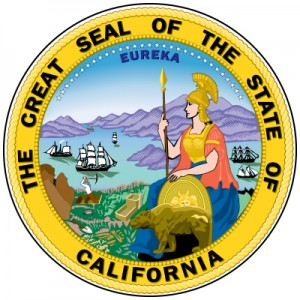The debate over California iPoker regulation has been ongoing for 7 years now. Throughout all that time, influential tribes have failed to agree on several key factors within possible legislation. Now, it seems the only thing they can agree on is the need to agree. But when it comes to bad actors, tainted assets and especially the inclusion of horse racing tracks in a California iPoker market, cohesive mindsets are far from reality.
 Two of the state’s most powerful tribes, the Rincon Band of Luiseño Indians and San Manuel Band of Serrano Mission Indians, are calling for unilateral conformity from the rest of California’s tribes, particularly the Pechanga Coalition.
Two of the state’s most powerful tribes, the Rincon Band of Luiseño Indians and San Manuel Band of Serrano Mission Indians, are calling for unilateral conformity from the rest of California’s tribes, particularly the Pechanga Coalition.
The Pechanga Coalition consists of 7 tribes, including the Agua Caliente Band of Cahuilla Indians, the Barona Band of Mission Indians, the Lytton Band of Pomo Indians, the Pechanga Band of Luiseño Indians, the Sycuan Band of the Kumeyaay Nation, the Viejas Band of Kumeyaay Indians and the Yocha Dehe Wintun Nation.
Rincon and San Manuel Urge Cohesion
Laurie E. Gonzalez, member of the Rincon Band Council, issued a press release last Wednesday in which she implored tribes to reach an accord regarding California iPoker regulation.
“Rincon is working with tribes and the state to find a middle ground that a majority of the stakeholders can accept. We are flexible on most issues and willing to work to reach a consensus,” said Gonzalez. “We urge all parties to look for common ground rather than digging their heels into the ground.”
Similar sentiments were shared by Lynn Valbuena, Chairwoman of the San Manuel Band. Valbuena gave a keynote address at last week’s Capitol Weekly gambling conference, in which she confirmed that the San Manuel had “an open mind” about horse race tracks, and appealed to other tribes to entertain the same approach.
“We’re evaluating all of our options right now, with the race tracks,” said Valbuena. “As we all know there are tribes who are opposed to having the tracks in. We have an open mind. We’re still discussing those issues and looking at every option available.”
Pechanga Coalition Not Likely to Bend
The Pechanga Coalition, however, has been staunchly opposed to allowing race tracks to participate in a California iPoker market. While Pechanga Chairman Mark Macarro has previously agreed with a need to compromise, he’s shown no willingness to meet other tribes halfway.
“The only entities that can play poker in California are Indian tribes and card clubs, period,” said Macarro at the GiGse Conference in San Francisco in April. He is standing on the current legal framework that was passed by public initiative in 1998 and 2000, wherein tribal governments (alongside commercial card rooms, where only poker is permitted) were granted exclusivity to operate casinos in the state; a business that has grown to be worth some $7 billion annually.
Horse Tracks Unwilling to Back Down
But horse race tracks disagree with vehemence, stating that they—and their highly influential political backers—will not support a California iPoker bill that leaves them with little more than a subsidized payoff to refrain from entering the market. They believe it is their legal right to join in online poker, and said as much in a letter to State Senator Tom Berryhill last August.
Operators of race tracks argue that because internet poker is not yet licensed or regulated, the current gambling statutes do not apply. Therefore it is within the power of state legislators to grant horse tracks the authorization to participate in a California iPoker market.
If legislators do not grant them that right, race tracks insist their influential powers will prevent any bill from making it into the law books; just as the Pechanga Coalition believes they can prevent passage of any bill that does give race tracks legal authorization to conduct California iPoker.
California iPoker Doomed without Tribal Unity
Valbuena is certain that, if all tribes can do is agree to disagree, online poker regulation simply will not happen, yet again. “This has been going on for seven years, and we need to get this done … this year, in 2015. We are all tribes with the same goals and objectives and we need to stay together and work this through to get a bill passed.
“San Manuel has believed all along that I-poker in California is a commercial gaming matter,” she said, contending that because it will be taxed and regulated by the state, it does not fall under the guidelines of the Indian Gaming Regulatory Act. “We do not believe our exclusivity for… Class III casino-style gaming in California is threatened by authorizing I-poker in California.”
But again, getting all 58 of the state’s tribes—or at least the largest, most influential ones—to agree on that matter is much easier said than done.
